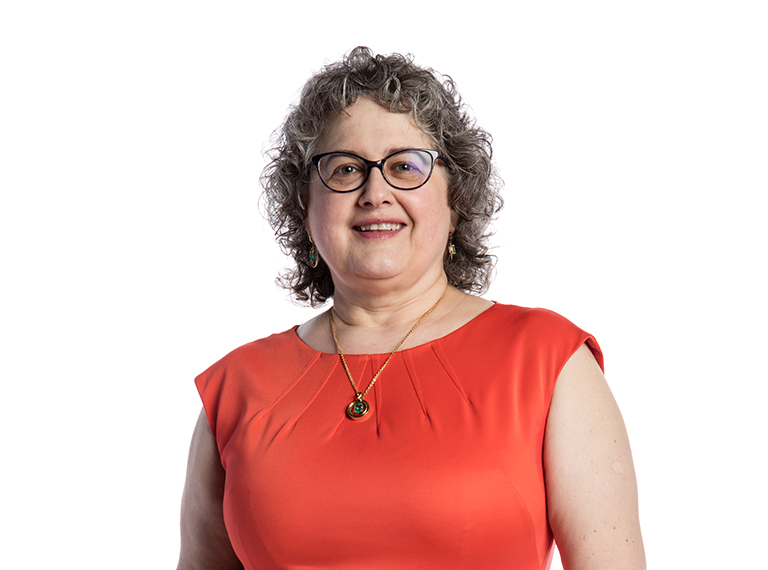Health & Wellness
A gift to Student Wellness Services is an ‘investment in human capital’

When Daniela Bonafede-Chhabra (BS ’84) sent off her college applications, she was too intimidated to apply to Caltech.
College itself was a novelty in her small hometown in northern Italy, and no one in her family had attended college before. It made it difficult for her to even imagine getting into an institution like Caltech.
That changed one day when she found a translated copy of James D. Watson’s The Double Helix in a library in Milan.
“When I read this book, it showed me that scientists are just normal people, with all the foibles and emotions of normal people,” Bonafede-Chhabra says. “It removed a ‘forbidden’ sign for me.”
The book also introduced her to great Caltech scientists such as Max Delbrück and Linus Pauling.
“There was a note from the translator in the book that said something like ‘Caltech stands for California Institute of Technology and it’s kind of like a monastery devoted to science. It is very small and people are just immersed in science,’' she recalls.
From that moment, Bonafede-Chhabra was determined to study genetics, and Caltech was the only place to do it.
During a summer program at Harvard, students studying calculus–then a subject well beyond Bonafede-Chhabra’s grasp–told her they wouldn’t apply to Caltech because they didn’t think they would get in. She began questioning her dream. She sent off applications to other colleges, but not to Caltech.
“Finally, I realized that I had given up even before Caltech had a chance to say ‘no’ to me,” she says.
On Christmas, she went to her dad and asked if he would pay for her to rush her last-minute application, and he agreed. She sat down, wrote an impassioned essay about why she wanted to attend, and slipped her application into the FedEx box.
“In the spring, I received a letter saying that I had been admitted,” she says. “I was stunned. I thought I had just won the lottery.”

After years of dreaming about Caltech, Bonafede-Chhabra had finally arrived. But her classes were rigorous and adjusting was difficult. She scrambled to keep up her grades and ended up failing her first quarter physics class. She didn’t know where to turn and considered going home.
What kept her head above water during this time was her inherent optimism and determination, the biology classes she was highly passionate about, the Caltech Fencing Team, and the opportunity to engage in research, which helped her keep “an eye on the prize.”
She also took advantage of what Southern California had to offer–going to movies, driving to the beach, attending plays at local theaters. Over time, she found a balance and built her own support system.
But she also saw other students struggling.
“There was a lot of self-medication with alcohol and drugs, and self-harming, which I hadn’t been exposed to before,” she says. “Students at Caltech are exceptionally bright. They are intense, they are focused, they are often socially awkward. That can also lead to mental health problems.”
At the time, Bonafede-Chhabra says she felt students were resorting to these measures because students were limited in being able to understand and find help for their mental health challenges.
When she became concerned about the mental health of a fellow student on her house floor, she made an appointment with the campus psychiatrist to seek advice. He recruited her to join the peer counselors program. She spent a weekend training to listen to other students and look for signs of mental distress. Afterward, counselors met once a week to discuss what students were experiencing on campus.
Bonafede-Chhabra’s own struggle, and the struggles of other students, inspired her and her husband, Ashvin Chhabra, president and chief investment officer at Euclidean Capital, to make a gift to Student Wellness Services (SWS)–a key pillar in the Initiative for Caltech Students. SWS offers care, resources, and programs that help students build time management skills, find balance in a rigorous academic setting, and support physical and mental wellbeing.
Gifts to Student Wellness Services will allow the Institute to continue to expand offerings and integrate wellness into students’ everyday lives. Bonafede-Chhabra says it is the best investment one can make.
“It’s an investment in human capital,” she says. “Caltech students are bright and can do anything. They can change the world. But nothing else matters if the mind can’t support all of the wonderful ideas it has.”
This archived content may contain outdated information or references that may not reflect current practices or programs.